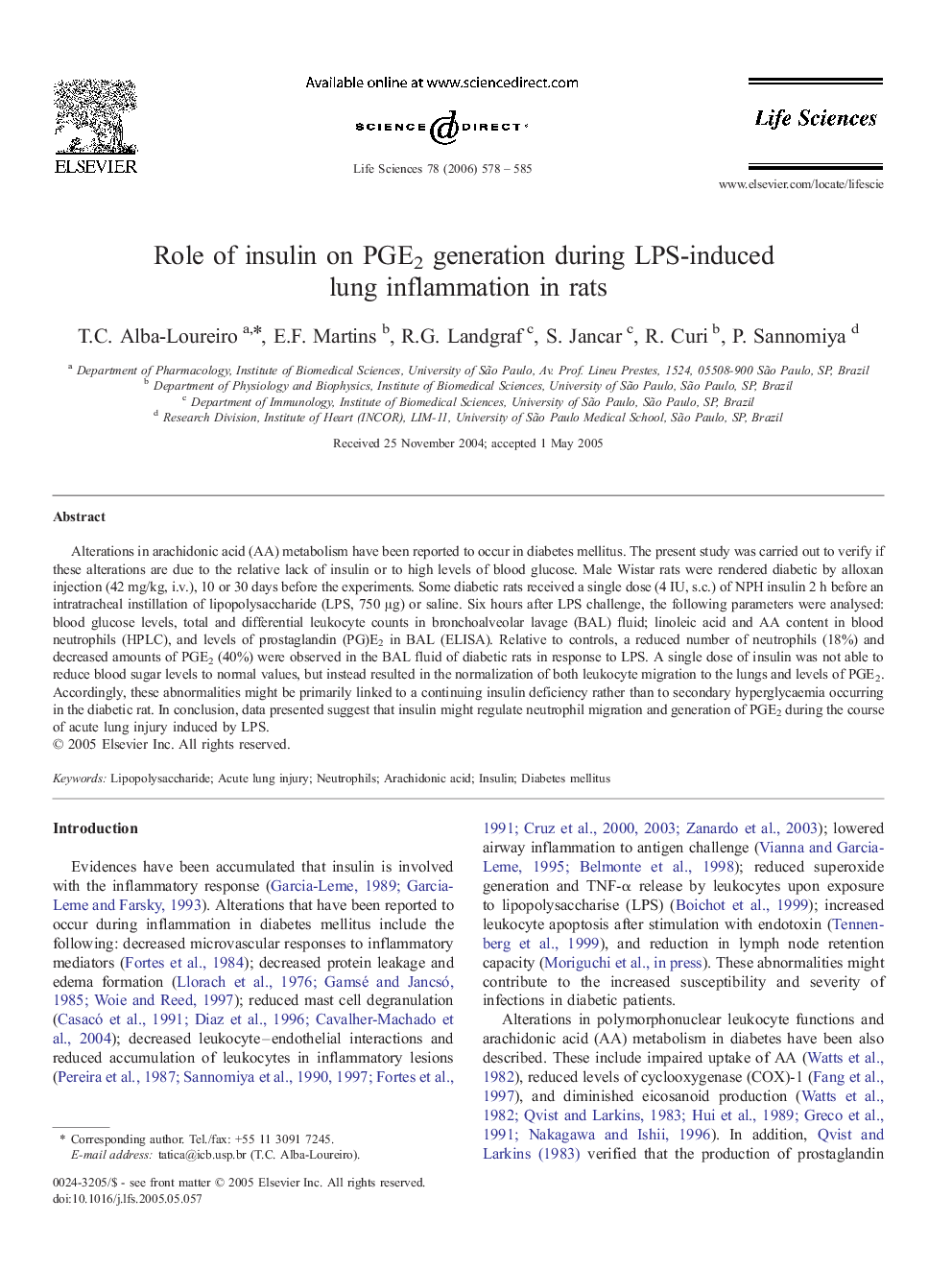| Article ID | Journal | Published Year | Pages | File Type |
|---|---|---|---|---|
| 2554705 | Life Sciences | 2006 | 8 Pages |
Alterations in arachidonic acid (AA) metabolism have been reported to occur in diabetes mellitus. The present study was carried out to verify if these alterations are due to the relative lack of insulin or to high levels of blood glucose. Male Wistar rats were rendered diabetic by alloxan injection (42 mg/kg, i.v.), 10 or 30 days before the experiments. Some diabetic rats received a single dose (4 IU, s.c.) of NPH insulin 2 h before an intratracheal instillation of lipopolysaccharide (LPS, 750 μg) or saline. Six hours after LPS challenge, the following parameters were analysed: blood glucose levels, total and differential leukocyte counts in bronchoalveolar lavage (BAL) fluid; linoleic acid and AA content in blood neutrophils (HPLC), and levels of prostaglandin (PG)E2 in BAL (ELISA). Relative to controls, a reduced number of neutrophils (18%) and decreased amounts of PGE2 (40%) were observed in the BAL fluid of diabetic rats in response to LPS. A single dose of insulin was not able to reduce blood sugar levels to normal values, but instead resulted in the normalization of both leukocyte migration to the lungs and levels of PGE2. Accordingly, these abnormalities might be primarily linked to a continuing insulin deficiency rather than to secondary hyperglycaemia occurring in the diabetic rat. In conclusion, data presented suggest that insulin might regulate neutrophil migration and generation of PGE2 during the course of acute lung injury induced by LPS.
